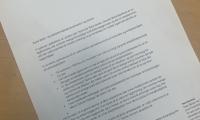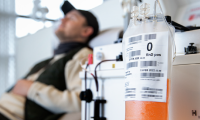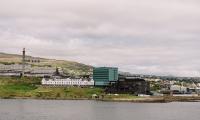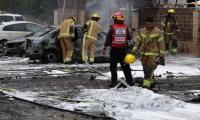“Almost all of our staff in Kyiv woke up from the sounds of explosions"
“On the first day of the war we transferred 3 mln UAH (nearly 100K US dollars) for the needs of the Ukrainian Armed forces. Then we gave to the army all our warehouse stocks through Ukraine – personal protective equipment, reagents, disinfectants etc.,” tells Head of PR at Synevo laboratories in Ukraine, Viktoriya Ilinska. Read about how private laboratories in Ukraine function and how they are struggling through the war.
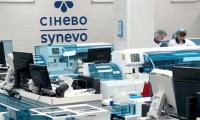
On the 24th of February Russia began its full-scale invasion on the territory of the sovereign Ukraine. Ukraine was preparing for the war, though a lot of people didn’t believe that Russia would go so far with its threats.
Nevertheless it happened. And the functioning of every sector of the country has changed dramatically. Private laboratories and blood transfusion stations are not an exception.
In Ukraine private laboratories are quite popular. The price is relatively affordable. Some of the necessary medical tests can be held in laboratories at the state hospitals and ambulances, but some people prefer just to go to the private laboratory point and pay money to escape waiting in lines and have quicker results directly to their email.
How private laboratories in Ukraine function and how they are struggling through the war? And what about blood stations? Let’s talk about this.
Private laboratories vs state laboratories
Synevo is part of the European medical holding Medicover, and its laboratory network is represented in 11 countries around the world, including Ukraine, Germany, Poland, Romania, Turkey and others.
“Almost all of our staff in Kyiv woke up from the sounds of explosions. A few weeks before the war started management was preparing for the war situation, discussing possible scenarios, the ways how to behave if it happens. But on the first day of war we were frustrated as far as most of the country’s economy stopped, and it was impossible to predict the future actions for the business even for the next few days,” says head of PR of the private medical laboratory Synevo, Viktoria Ilinska.

Viktoria tells that in Kyiv part of the team managed to reach the working places at 7 a.m., but most of the office workers spent many hours in traffic jams across the city.
On the first day of the war Synevo laboratory centers and laboratories in most of the regions were opened and tried to work as usual. But the situation became too hot in many regions and escalated unpredictably, that’s why management was forced to stop the work of the company from the next day – from 25th of February (second day of the war).
"The safety of our staff is the main priority, so we couldn’t risk our people," says Viktoria Ilinska and countiues.
“The next challenge we faced – collapse of logistics through the country. Some roads between the cities and inside were blocked, and we couldn’t even deliver our clients’ biosamples for testing to the laboratories."
"We have eight laboratories all over Ukraine. And samples are transported from the blood drawing centers to the laboratories, where they are finally tested. On the first day of war we managed to deliver only part of them understanding that situation will be getting more and more complicated further,” Viktoriya Ilinska tells.
Lost 98 percent of income
The demand on the laboratory’s services also dropped immediately. People often attend Ukrainian private laboratories as Synevo for non-emergency issues. It is popular and quite affordable to check something just because you want to.
There are different opinions whether it is an advantage or disadvantage of the Ukrainian healthcare system, but if you decided to check on your vitamin D deficiency you are able to do this just because you decided so. Even without a medical prescription.
But in wartime all outpatient procedures just became temporarily unnecessary.
During the first three weeks of the full-scale war the Synevo network in Ukraine lost 98 percent of its income. But the company continued paying salaries to all the staff and keeping almost 3000 working places.
But several weeks later the company began to renovate its work. Firstly the work was resumed in the cities where the company had laboratories and the logistics between the cities wasn’t needed. Mostly in the west and center of the country where the situation was relatively calm.
The Head of PR mentions that even in the towns which are not under constant shelling people are quite reluctant to attend laboratories.
Needs of the army
Though from the business point of view the situation doesn’t sound great, private laboratories are actively taking part in the defense capability of the country.
“On the first day of the war we transferred 3 mln UAH (nearly 100K US dollars) for the needs of the Ukrainian Armed forces. Then we gave to the army all our warehouse stocks through Ukraine – personal protective equipment, reagents, disinfectants etc. It was completely our decision: everything we could give – we gave for the needs of the Armed forces of Ukraine and hospitals,” Viktoriya Ilinska says.
She directly communicated with the Office of the President of Ukraine and could get special permission for the company's drivers and storekeepers so they could transport necessary staff even during the curfew.
Also private laboratories began to provide some of the services on a free basis for those who needed this.
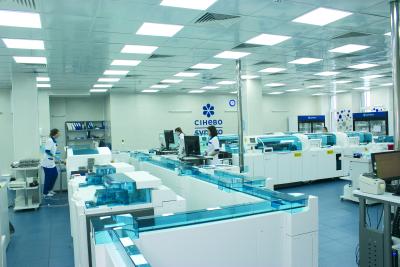
Safety first
Synevo laboratories are functioning in 11 European countries.
“During just one night, our Medicover head office created an online platform I NEED HELP. Our Ukrainian staff could register there and ask for help - mostly it referred to relocation. Our colleagues from Medicover and Synevo European offices helped to evacuate, offered accommodation, financial support and for some staff even workplaces. We talk mostly about “female workers” as in general men are not allowed to leave the country during the time of the martial law. Though there are also some exceptions," says Viktoriya Ilinska and contiues.
"In total at least 1000 people – company’s workers and their relatives – left the country. But management stayed in the country to be able to make quick decisions if necessary. We just moved from Kyiv to Lviv – city in the west of the country.”
Back to work
Laboratory points in Kyiv are still closed in late april, when this article was written. Company decided it would be too risky to open the business amid low demand and high risk for staff, but there are plans on resuming the work. Synevo central laboratory in Kyiv is located at a distance of 5-10 km from the places where heavy fightings were - in Bucha, and Gostomel. And directly in these towns many of Synevo employees lived next to the office, and now there is nowhere to come back.
“But now the situation is more stable. At the beginning of May we have plans to reopen the business in Kyiv and other regions, but are going to do this gradually. And also we need people to reopen. As I already mentioned, many people evacuated, the war is still going on and we just cannot demand to come back. So reopening will be very gradual step by step," Viktoriya Ilinska tells.
